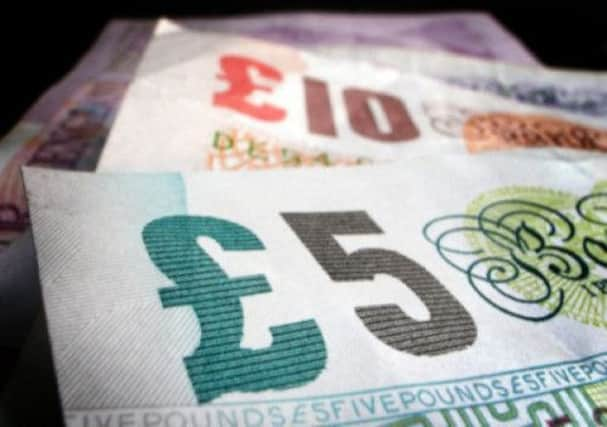Comment: Price to pay for tinkering with market


The debate is emanating from across the political spectrum. Labour leader Ed Miliband has concluded that energy firms have been overcharging for too long and that it is now time to “re-set” the energy market. Tory Transport Secretary Patrick McLoughlin also proposes state intervention, claiming that “by capping rail fares we are protecting passengers from large rises at a time when family incomes are already being squeezed”. And former prime minister John Major surprised Number 10 with a call for a windfall tax on energy companies.
Meanwhile, in the House of Lords, Archbishop of Canterbury – and former oil industry executive – Justin Welby suggests another method of determining energy prices. He optimistically pronounced that: “Firms must show generosity … not just maximise profits”.
Advertisement
Hide AdAdvertisement
Hide AdWelby has also railed against pay-day loans, claiming that they are too costly. Chancellor George Osborne has lent his support to His Grace, asking the Financial Conduct Authority to use its powers to cap pay-day loan interest rates.
I am no apologist for Wonga et al. But this is an industry that has been hauled in front of competition and pricing reviews so frequently that it may as well have a season ticket. And yet, each of these reviews has concluded that the market functions relatively well, albeit not at the price levels that politicians would like.
Now we even have a committee, in the form of the Financial Policy Committee (FPC), that will tell us when the invisible hand has signalled the “wrong” price – i.e. a price that threatens financial stability. Such a presumption of omniscience is indeed onerous. But should the FPC deem a price “incorrect”, it has considerable powers to remedy the perceived mispricing.
The question is, does any of this matter? The answer is: “Yes, of course it does.”
I can understand politicians’ concerns over pricing. We are told that we are seeing a recovery in the UK and most Western economies. Stock markets around the world are reflecting this good news. However, for a large chunk of the UK population, and more pertinently for politicians, the UK electorate, it doesn’t feel much like a recovery.
There is little growth in real wages, and high inflation continues to erode the value of incomes and savings. Accordingly, the disquiet over soaring energy prices is understandable. Accordingly, it is easy to see the political – and even perhaps ethical – attraction of setting price controls.
Yet a free market has generally been seen as a good way of allocating scarce resources. In a market economy, prices serve as signals to producers of goods to increase or decrease production.
The financial crisis is a salutary reminder that markets can get things wrong, and misallocation of scarce resources can and does happen. But politicians have a far-from-unblemished record when setting prices, as any student of Eastern Europe’s post-war command economies can attest.
Advertisement
Hide AdAdvertisement
Hide AdSetting prices at the “wrong” level – below the supply/demand equilibrium – will, inevitably, send the wrong signal to participants in the market. In the pay-day lending market a price cap will, other things remaining equal, increase demand, but it will also surely decrease supply. Will this supply shortage be satisfied by mainstream lenders – or by the unofficial, and unregulated, sector?
In the energy sector a price freeze will decrease profitability, and leave less attributable profit to allocate to dividends or future investment. Politicians may care little about dividends, even though they should. But they will, in due course, care about infrastructure investment. Price controls are likely to make long-term investment riskier. It will be up to energy company management to choose an appropriate rate to discount future projects. Inevitably, price controls will result in a higher required rate of return. The result? Less investment.
These are complex issues. Among other things, they touch on how we wish to behave towards our neighbours, what is “fair”, and what suits an electoral cycle. After years in which the primacy of the free market has been largely unchallenged, politicians are now articulating much stronger views on the “right” prices for goods and services. In a democracy, this is their right. Nevertheless, those same politicians should be reminded that there is a potential cost. I hope they are factoring this into their decisions.
• Richard Dunbar is deputy head of global strategy at Scottish Widows Investment Partnership (Swip)